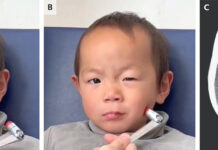Since the time pandemic hit and restrictions came in place, people had no choice but to stay indoors, in their homes, abiding by the lockdown rules. People got accustomed and started avoided human interaction!
Habits are difficult to change. When the pandemic hit, it was difficult for people to remain within the house boundaries. Now after more than a year, it is difficult for most of us to step out and indulge in human interaction.
A psychiatrist, Dr. Arthur Bregman, coined a non-medical term for this fear, “cave syndrome.”
Dr. Bregmana found that many of his patients are afraid of going out, especially nervous about interaction with other people. Some have mild fears while others have extreme fears.
He said, while talking about his teleconsultations:
“I’ve seen patients who are locked in their room at home and they’re wearing a mask.”
Many of his patients wanted him to write a note for them advising against going to work in-person.
To manange this fear, Dr. Bregmana taught them his MAV system. MAV is a abbreviation of “mindfulness, attitude and vision.”
He advised them that the first step is being mindful of what’s bothering them and focus on it. After knowing the factors that are creating the nervousness, the next step is to try and counteract those. This is done by developing a positive attitude and optimistic mindset.
The best way is to think about all the amazing and enjoyable things that they did before the pandemic. Last but not least is to visualize.
These steps may gradually help people to crawl put of their caves
Dr. Bregmana added:
“The sooner people can do this system, the better. The longer people are in their cave, the harder it is to get out.”
Although some reluctance is not unusual, it is best to start the admit the fear and work against it. Having said that, “Cave syndrome” is not a formal medical diagnosis, therefore, has no specific standard diagnostic criteria for it.
Dr. Alan Teo, an associate professor of psychiatry at Oregon Health and Science University in Portland believes that is not normal to feel uncomfortable in going out after prolong restriction, therefore, he is careful in applying this term “cave syndrome” to might be a normal human response.
He believes that this might be normal anxiety and an appropriate response which doesn’t need a label of a syndrome.
However, for severe persistent cases, professional help might be imperative.
Teo suggests that people who are afraid of socialising should compare themselves to those who socialise even less to make themselves feel a little better. Moreover, he suggested exposure and response prevention, i.e. gradually exposing to what one fears.
Teo said:
“We were resilient in adapting to spending more time alone at home, and I think with practice those social skills are going to come back.“




